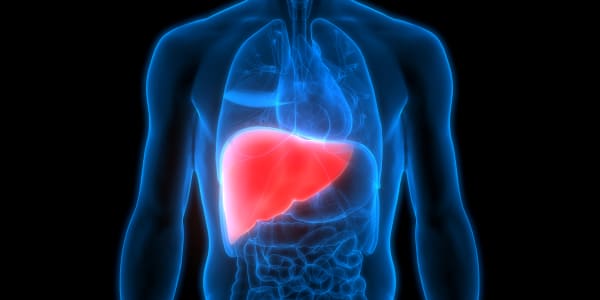For the first time, a study on internet addiction is being funded by The National Institutes of Health, a signal that the problems stemming from excessive internet use may finally be getting the serious attention it deserves from the U.S. mental health community.
The two-year study kicks off this week and is being conducted at the University of Connecticut School of Medicine. It may ultimately help to determine whether internet addiction, specifically online gaming, should be listed in the Diagnostic and Statistical Manual of Mental Disorders — widely known as the DSM-5 — as a true mental health disorder.
The lead investigator of the study, Dr. Nancy Petry, also happens to be part of the American Psychiatric Association Workgroup on Substance Use and Related Disorders for the DSM-5 and chaired the subcommittee on non-substance-use addictive disorders. According to her, in 2013, when the DSM-5 was last published, there "wasn't sufficient evidence to conclude that internet gaming addiction is a condition that can be reliably or accurately ascertained in people."
There still isn't, she says, but this new study may provide the data necessary to move internet gaming addiction, currently listed in the appendix of the DSM as a "condition that needs further research," into the main manual as an official disorder — providing sufferers the possibility of one day being insured for treatment. "Having something listed as a disorder affects reimbursement in this country. That's a huge thing," Dr. Petry told CNBC.
"A lot of people have developed such severe problems with gaming," she said. "They stay up all day and game for 24 hours, and there is evidence that they are dropping out of school; they are losing their jobs; they are losing their families." She adds that those with gaming addictions are primarily male and have co-morbidities, such as ADHD.
Many other countries — including Australia, China, Japan, India, Italy, Japan, Korea and Taiwan— already officially recognize tech addiction as a disorder, some even going so far as to declare the issue a public health crisis, leading governments and health-care providers to develop a series of major initiatives to curb the problem. But the discrepancies in the numbers of gamers diagnosed with addiction across the countries have spurred much debate over the accuracy of the criteria being used.
'A major coup'
According to Dr. Petry, the grant from the NIH — $416,694 — was "a major coup," because other institutes refuse to recognize gaming addiction as a condition and therefore decline to fund it. But this isn't the first time Dr. Petry has fought for funding and won: She also headed the first-ever NIH study for gambling addiction.
The study for internet gaming disorder focuses on cognitive behavioral treatments and will examine adolescents ages 13 to 18 who have a significant problem with gaming and are still living at home. This is the age most known to show signs of problematic gaming, Dr. Petry says. Official enrollment is now under way. The randomized controlled study will refer half the group to widely available treatments in their community for a co-occurring disorder; the other group will receive a six-session intervention from the APA as well as the treatment for the co-occurring disorder. Afterward the results will be compared.
The need for 'reliable and accurate' criteria
Dr. Petry claims that the debate surrounding whether or not gaming addiction should be classified as a disorder lies in the fact that this is "a new phenomenon and everybody is measuring it in different ways." She says people aren't quite clear on what the constricts are. "We need to be consistent in defining these criteria and determine if they lead to significant harms before we blanketly label something as a disorder," she says.
Dr. Petry believes the diagnostic criteria in the DSM-5 for internet gaming disorder is "reliable and accurate." These include preoccupation with internet gaming, withdrawal symptoms, unsuccessful attempts to quit playing, loss of interest in previously enjoyed activities, continuing to play despite problems, deceiving others about the amount of time spent on gaming, using gaming to relieve negative moods and jeopardizing or losing a job due to gaming. If a person exhibits five or more of the symptoms, they could potentially be diagnosed as having internet gaming disorder.
The 'other' tech addictions: Real or just a bad habit?
Many mental health experts argue, however, that excessive use of the internet extends to more than just gaming; sexting and porn addiction, online infidelity, online gambling, social media addiction, information overload and screen addiction are destroying millions of lives as well —and costing corporate America billions. According to a recent study by Vault.com, surfing costs $54 billion annually in lost productivity.
As there is no standard criteria for diagnosis, especially between countries, it is impossible to put a number on the actual number of people who suffer from digital overuse, but surveys in the United States and Europe have indicated that it ranges between 1.5 and 8.2 percent of the population.
Yet not everyone is buying into it.
"Tech addiction is a hot topic and one that people talk about a lot, but we need to clearly define and differentiate what constitutes a mental disorder that is causing major adverse consequences and distinguish it from just a bad habit that people just wish they weren't doing," Dr. Petry says.
Disorder or not, scientists have determined that excessive internet use adversely affects the brain's frontal lobe and brainstem functions, resulting in delayed cognitive development—the ability to focus, speak, reason and comprehend social cues. Ultimately, internet addiction can cause anxiety and depression, ADHD, stress, obesity and the inability to interact in the real world, leading to personal, family, academic, financial and occupational problems. And medical experts say it's steadily going to get worse as technology gets faster and smarter, fueling the need for this "digital heroine."
Like alcohol and drugs, the internet provides a high, and addicts become dependent on it for pleasure, claims Dr. David Greenfield, founder of the Center for Internet and Technology Addiction in West Hartford, Connecticut, one of the first tech addiction centers to open in the United States.
More from Modern Medicine:
Doctors on cusp of launching male contraceptive need to seduce Big Pharma
FDA testing groundbreaking science: Human organs-on-a-chip Huge ER bills leave patients in shock
An assistant clinical professor of psychiatry at the University of Connecticut School of Medicine, Dr. Greenfield is considered a pioneer in treating digital media overuse. His book, Virtual Addiction, rang an early warning bell when it came out in 1999, when the internet was still being accessed only through dial-up.
"There was no high-speed internet, no Wi-Fi, no laptops or tablets, no smartphones, and it was already an issue," he said. "But now, because we have greater ease of access and it's easier to pick and click and have that automatic intoxication of response, it's more addictive."
The numbers of referral and patients that we get calls from has probably gone up 10-fold in the last 20 years. We have had a 1,000 percent increase in the numbers of cases.Dr. David Greenfieldfounder of the Center for Internet and Technology Addiction
Dr. Greenfield claims that this has led to an explosion of internet and tech abuse and addiction. "The numbers of referral and patients that we get calls from has probably gone up 10-fold in the last 20 years. We have had a 1,000 percent increase in the numbers of cases, and we treat hundreds of cases a year at this point."
To meet the demand, hundreds of outpatient treatment centers are popping up all over the country, offering weekly intensives, digital-detox retreats and wilderness therapy.
Dr. Greenfield's center will soon be adding a 30- to 60-day residential recovery program—the fourth in the United States to offer residential treatment. The others are reSTART, in Seattle; the Internet Addiction Treatment and Recovery Program at the Bradford Regional Medical Center in Pennsylvania; and the Illinois Institute for Addiction Recovery in Peoria, Illinois.
The cost of these programs: anywhere from $3,000 to $45,000, depending on length of stay and whether the recovery program involves residential or outpatient treatment.
5 tips to keep your child from becoming addicted to tech
1. Let your actions speak louder than your words. Lead by example and make face-to-face interaction more important than being on your smartphone.
2. Explain how biomechanics affect your brain and your body. Have an open and honest conversation with your kids about how these devices can affect them physically and mentally may put the brakes on.
3. Set limits on screen time. This is the most obvious step but perhaps the most difficult to enforce, says Bark. "You can't just give your child a device and think they will turn it off when it's reasonable. We have to be parents. Take away the chargers. Use screen-time management apps." Bark recommends Circle, Luma or Unglue.
4. Have screen-free zones in your house. Don't let your kids take their devices into their bedroom. Limit it to common areas.
5. Indulge in the real world. As a family, embrace art and music and cooking. Get outside, put your feet in the grass and experience the world."
Source: Titania Jordan, chief parenting officer at Bark, an internet watchdog keeping kids safe online
US lags far behind
While it may appear that the United States is gearing up to provide some much-needed intervention for this growing issue, their efforts pale in comparison to other countries. Globally, internet addiction has been receiving widespread attention, as are resources for people seeking treatment.
In South Korea, China and Japan, where internet gaming is a major industry, tech addiction is considered a public health crisis. The South Korean government sponsors about 200 counseling centers and hospitals with programs on internet addiction and has trained more than 1,000 counselors. In 2013 the Ministry of Education in Japan introduced internet "fasting camps" for young addicts to receive counseling in a tech-free environment. China has more than 300 treatment centers (China officials there estimate 10 million teenagers are addicted).
Insurance, says Dr. Petry, is largely to blame. In the United States, almost all clients have to pay out of pocket, as the centers can't bill health insurance companies for internet addiction treatment, since it hasn't been recognized in the DSM as a mental disorder by the American Psychiatric Association. And all three of the treatment centers are expensive; reSTART, for example, costs around $25,000 for the first month and $8,500 for a month of outpatient treatment.
Yet Dr. Petry is optimistic things will shift. "There's so much work going on with this right now—not in the U.S. but in Southeast Asia and Europe. By the time the next DSM is published, the data will be available."
And should online gaming addiction be designated as a mental health disorder, she says, other tech addictions may follow suit.





